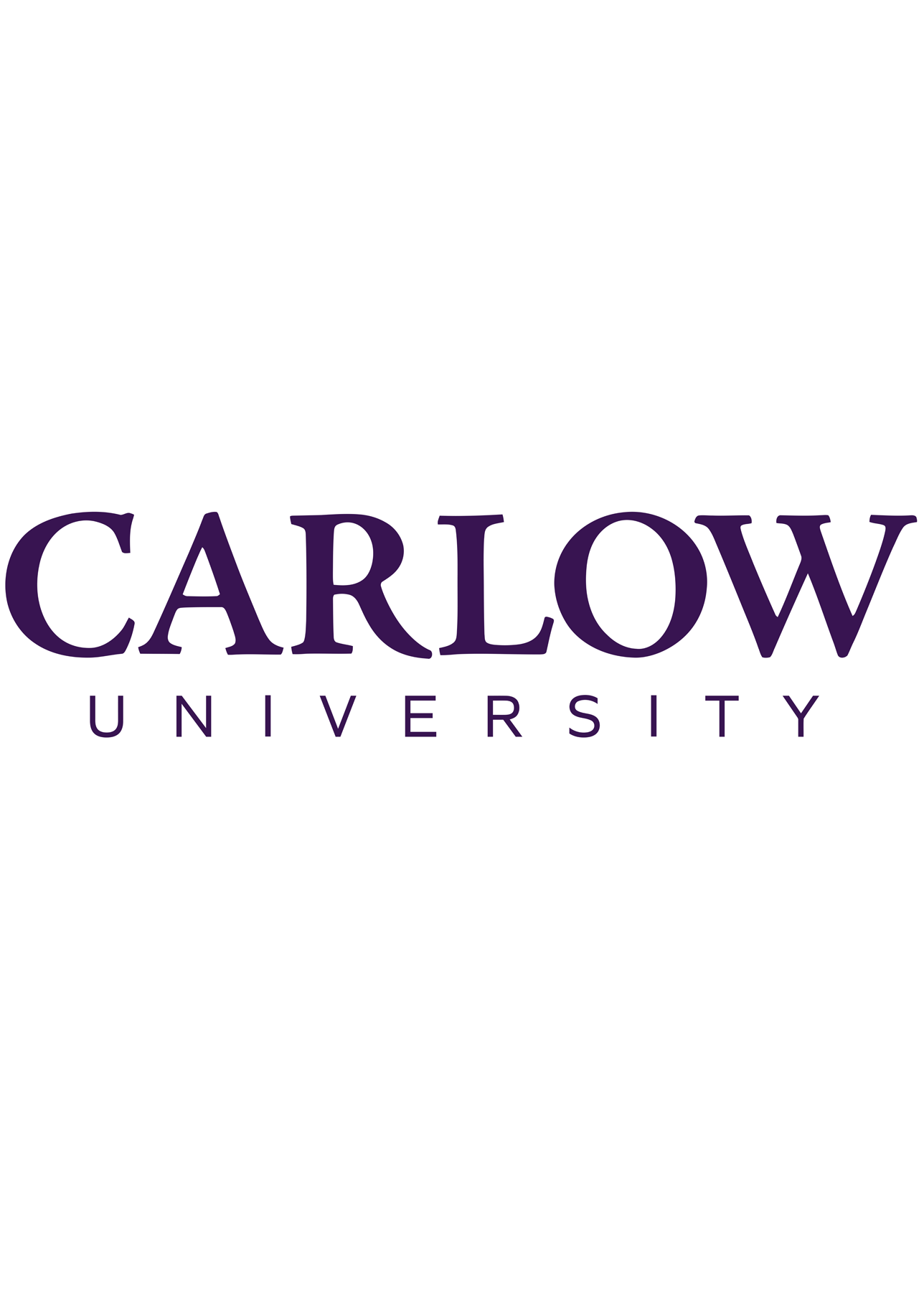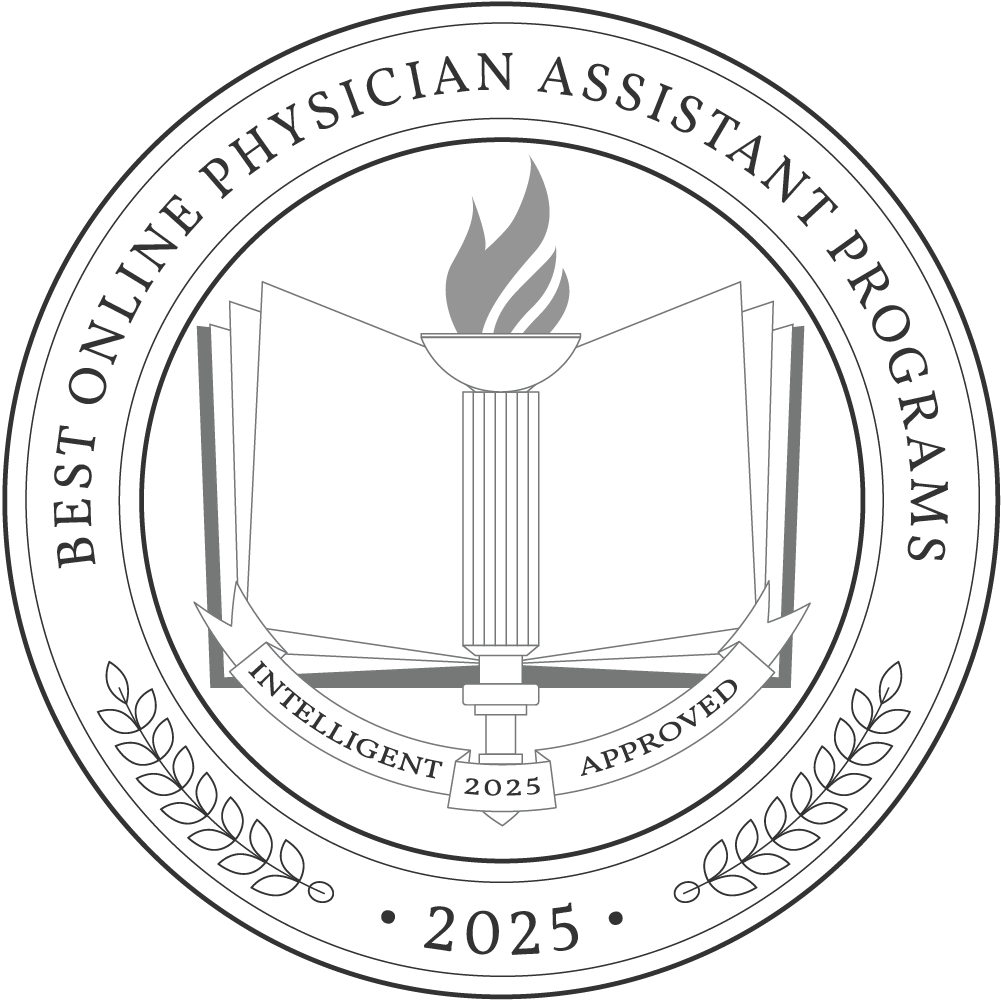An online physician assistant (PA) degree opens doors to dynamic career opportunities. A PA program prepares students to practice medicine under the supervision of physicians, specializing in patient care across settings such as hospitals, clinics, and surgical centers.
According to the Bureau of Labor Statistics, physician assistants earn an average annual salary of approximately $130,020, with the number of roles expected to grow by 27 percent by 2032, which is much faster than average. Typically, completing an online PA program takes about two to three years, including clinical rotations. Costs vary widely, with average tuition ranging from about $12,000 to $28,000 per year, depending on the institution. These programs provide a flexible pathway for aspiring healthcare professionals to enter a rewarding and rapidly expanding field.
Why Trust Us
The Intelligent.com Higher Education Team is dedicated to providing students with independent, equitable school and program rankings and well-researched resources. Our expert-driven articles cover topics related to online colleges and programs, paying for school, and career outlooks. We use data from the U.S. Department of Education’s College Scorecard, the National Center for Education Statistics, and other reputable educational and professional organizations. Our academic advisory team reviews content and verifies accuracy throughout the year for the most current information. Partnerships do not influence rankings or editorial decisions.
- Analyzed over 2,000 national, accredited, and nonprofit colleges and universities
- 800+ rankings pages are reviewed and updated yearly
- Content is informed by reputable sources, surveys, and interviews with academic advisors and other experts
- Over 100 data points are reviewed for accuracy and quality throughout the year, including sources
How we rank schools
Our list features the best online Physician Assistant degree programs at top colleges nationwide. Each school featured is a nonprofit, accredited institution — either public or private — with a high standard of academic quality for post-secondary institutions.
We evaluated each school’s program on tuition costs, admission, retention and graduation rates, faculty, reputation, and the student resources provided for online students. We collected data from trusted sources like the National Center for Education Statistics, individual school and program websites, school admissions counselors, and other data sources. Then, we calculated the Intelligent Score on a scale of 0 to 100 based on the following criterion:
Academic Quality:
- Admission rate versus enrollment rate
- Retention rate of students who return after year one
- Accreditation status (regional and programmatic)
- Nonprofit status, both private and public institutions
Graduation Rate
- Overall graduation rate
- Total number of currently enrolled students, including diversity metrics
- Student-to-faculty ratio
Cost and ROI
- In-state and out-of-state per-credit tuition rates and fees
- Required credits to graduate
- Earning potential after graduation
- Availability of federal student loans, scholarships, and other financial aid options
Student Resources
- Available student services for online-only and hybrid programs
- On-campus amenities like tutoring centers and the number of libraries
Read more about our ranking methodology.
Best 1 Accredited Online Physician Assistant Program
FiltersInstitution Type
Status
- Intelligent Score
- Alphabetically By University Name
- Acceptance Rate
- Enrollment
- In-state Graduate Tuition
- Out-of-state Graduate Tuition
- In-state Undergraduate Tuition
- Out-of-state Undergraduate Tuition

Carlow University
Intelligent Score: 90.53In-state: $30,542
Out-of-state: $30,542
In-state: $19,844
Out-of-state: $19,844
SAT: 980-1140
ACT: 19-24
$950
Hybrid, On-Campus
Middle States Commission on Higher Education
123
How to Choose an Online Physician Assistant Degree Program
Choose your area of study
Prospective students should consider their interests in fields such as primary care, surgery, emergency medicine, or pediatrics. Researching each specialization’s job outlook, salary potential, and professional satisfaction helps in making an informed decision. Additionally, understanding the curriculum offerings and clinical rotation opportunities specific to each area of study ensures students receive relevant training. Tailoring your focus in this way not only enhances learning but also prepares you for your desired roles in healthcare upon graduation.
Research schools and programs
Identify accredited institutions known for their reputable healthcare programs. Evaluate each program’s curriculum to ensure it covers essential topics such as pharmacology, anatomy, clinical medicine, and patient assessment. Look for programs offering robust clinical rotation opportunities that align with your career interests. Investigate faculty credentials and their experience in the field, as well as student support services like career placement assistance and academic advising. Compare tuition costs, considering both in-state and out-of-state rates, and explore financial aid options to make informed decisions about affordability.
Prepare for tests and applications
Start by reviewing each potential program’s specific admission requirements, which often include standardized tests like the GRE or PA-CAT. Study diligently for the test using prep materials, practice tests, and online resources. Craft a compelling personal statement highlighting your passion for healthcare and relevant experiences. Obtain letters of recommendation from professionals who can attest to your academic abilities and commitment to the field. Ensure all application materials are completed accurately and submitted before deadlines. Before submitting, thoroughly proofread your materials to avoid even the smallest of typos.
Select your program
Evaluate the program accreditation of your chosen program to ensure it meets rigorous standards of education and prepares you for licensure. Consider the curriculum offered, focusing on core courses in clinical practice, patient care, and medical ethics, as well as any specialized tracks or concentrations of interest to you. Assess the flexibility of the program, including options for part-time or accelerated study. Research clinical rotation opportunities and affiliations with healthcare facilities to gain practical experience. Compare student support services such as career counseling, exam preparation, and networking opportunities within the medical community.
Determine how you’ll pay for your degree
Estimate the total cost of tuition, fees, and required materials for the program. Research financial aid options such as scholarships, grants, and student loans, and complete the Free Application for Federal Student Aid (FAFSA) to determine eligibility for federal assistance. Explore institutional scholarships or tuition reimbursement programs offered by employers, if applicable. Consider part-time employment or paid internships in healthcare settings to supplement income and gain valuable experience.
What Can You Expect From an Online Physician Assistant Degree Program?
Enrolling in an online PA program offers a comprehensive education designed to prepare students for clinical practice and patient care roles. Prospective students can expect to study a wide range of subjects, including anatomy, physiology, pharmacology, diagnostic techniques, and medical ethics. The curriculum typically integrates both theoretical coursework and practical clinical experiences through virtual simulations, interactive modules, and, in some cases, in-person clinical rotations.
The duration of online PA programs can vary but generally takes about two to three years to complete, including clinical rotations. Some programs may offer accelerated options for those with prior healthcare experience. While much of the coursework can be completed online, many programs require students to participate in in-person labs, simulations, or clinical residencies to gain hands-on experience. These practical components are critical for developing clinical skills and preparing for licensure or certification exams.
Potential courses you’ll take in an online physician assistant program
- Anatomy and Physiology. Covers the structure and function of the human body systems, emphasizing how they relate to health and disease. Students will learn about organ systems, cellular biology, and physiological processes essential for understanding patient care and medical assessments.
- Clinical Medicine. Students will study common medical conditions, their symptoms, diagnosis, and treatment options. Topics include primary care management, patient evaluation techniques, and interpreting diagnostic tests.
- Pharmacology. Focuses on the principles of pharmacology, including drug classifications and therapeutic uses. Students learn to understand drug interactions, adverse effects, and patient education related to medication management, crucial elements to allow for safe prescribing practices.
- Medical Ethics and Professionalism. Examines ethical dilemmas in healthcare practice, with an emphasis on patient rights, confidentiality, and professional conduct. Students explore legal responsibilities and ethical decision-making frameworks, preparing them to navigate complex ethical issues in patient care.
- Clinical Rotations. Clinical rotations provide hands-on experience in various healthcare settings under supervision. Students apply theoretical knowledge in real patient care scenarios, enhancing clinical skills and preparing for licensure exams and professional practice as physician assistants.
Online Physician Assistant Degree Frequently Asked Questions
How do I apply to an online physician assistant degree program?
Applying to an online PA degree program typically involves submitting an online application through the program’s website. Admission requirements often include official transcripts from previous academic institutions, letters of recommendation, a personal statement outlining career goals and motivations, and standardized test scores such as the GRE or PA-CAT. Before applying, prospective students are encouraged to speak with an admissions counselor to clarify any questions about requirements, discuss program expectations, and ensure all application materials are prepared accurately and submitted on time.
How much does an online physician assistant degree cost?
The cost of earning an online PA degree varies widely depending on the institution and whether you attend full-time or part-time. On average, according to the National Center for Education Statistics, tuition for graduate-level programs ranges from approximately $12,000 at public institutions to $28,000 or more at private colleges and universities. Additional costs may include fees for technology, online resources, and required clinical rotations. Compared to traditional in-person programs, online options may save students on commuting and housing expenses but could have similar tuition rates.
How long does it take to earn an online physician assistant degree?
Earning an online PA degree generally takes about two to three years of full-time study, including clinical rotations. Part-time enrollment options are available, which can extend the timeline accordingly. Online programs often offer flexibility in scheduling, allowing students to balance coursework with professional or personal obligations. In comparison, traditional on-campus PA programs generally follow a more static timeline. The total number of required credits, clinical hours, and any prerequisites completed prior to enrollment can also impact the overall length of the program.

